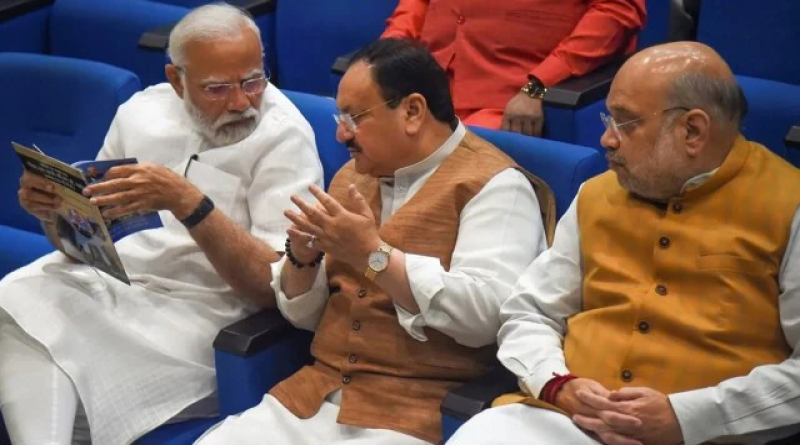Government Set to Enforce CAA with Notified Rules Ahead of Lok Sabha Elections

New Delhi: In a significant development, the Indian government is preparing to implement the Citizenship (Amendment) Act (CAA), with the official announcement of the long-awaited rules expected before the upcoming Lok Sabha elections. The CAA, passed in December 2019, seeks to expedite Indian citizenship for persecuted minorities, except Muslims from Pakistan, Afghanistan and Bangladesh.
Sources say that comprehensive rules have now been framed along with setting up an online portal for a streamlined application process. The entire process including the application is going to be online, so applicants will be able to apply easily through mobile phones also.
Government sources said, “We are going to issue rules for CAA in the coming days. Once the rules are issued, the law can be implemented, and eligible people can be given Indian citizenship.” Notably, no specific documents will be required, and applicants can declare their year of entry into India without travel documents.
Addressing concerns about delayed implementation, officials clarified that the rules will likely be implemented before the Lok Sabha elections. Applicants who have applied after 2014, their requests will be processed as per the new rules.
The CAA faced widespread protests soon after its passage, leading to repeated extensions to the rulemaking. The government, having secured eight extensions so far, is now ready to act on its commitment to implement the CAA. Clearing doubts, Union Home Minister Amit Shah in a recent address stressed the BJP’s dedication to the Act.
Several factors contributed to the delay, including protests in states such as Assam and Tripura, where concerns were raised about the law changing the demographic landscape. The CAA in Assam is considered a violation of the 1985 Assam Accord, which outlines citizenship provisions for foreign immigrants dating back to March 25, 1971.
While the protests have extended beyond the Northeast, legal challenges to the constitutional validity of the CAA remain. Several petitions, including one by the Indian Union Muslim League, question the law’s selective focus on specific religious communities and countries. The government argues that the CAA addresses a specific problem of persecution on the basis of religion in neighboring countries and asserts its constitutional validity.
The imminent enforcement of the CAA rules marks a significant development, underscoring the government’s commitment to implement this controversial law.






Pingback: ทัวร์เกาะหลีเป๊ะ
Pingback: chobreview.com
Pingback: FAFA789 ดีไหม ถ้ามองดูเทียบกับ LSM99
Pingback: communication
Pingback: ผู้ผลิต AdBlue รายแรกของประเทศไทย
Pingback: 10 อันดับเลขเด็ดงวดนี้
Pingback: รักษาสิว
Pingback: เช่ารถตู้พร้อมคนขับ
Pingback: bdsm chat
Pingback: Jaxx Liberty
Pingback: Bali Honeymoon Packages
Pingback: Telegram中文版
Pingback: สล็อตเว็บตรงแตกหนัก PG Slot เล่นผ่าน LSM99PLAY
Pingback: สล็อตเว็บตรง ไม่ผ่านเอเย่นต์ ฝากถอนออโต้
Pingback: massage Bangkok
Pingback: Porsche detailen
Pingback: české casino
Pingback: 12 ค่าย บาคาร่า All
Pingback: casino
Pingback: เว็บปั้มไลค์
Pingback: xo